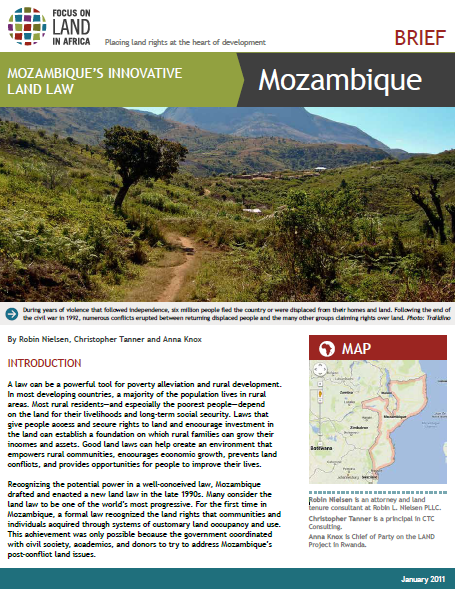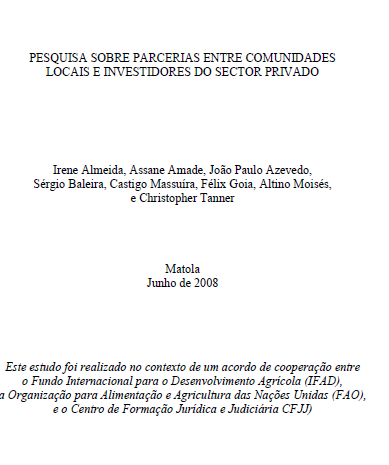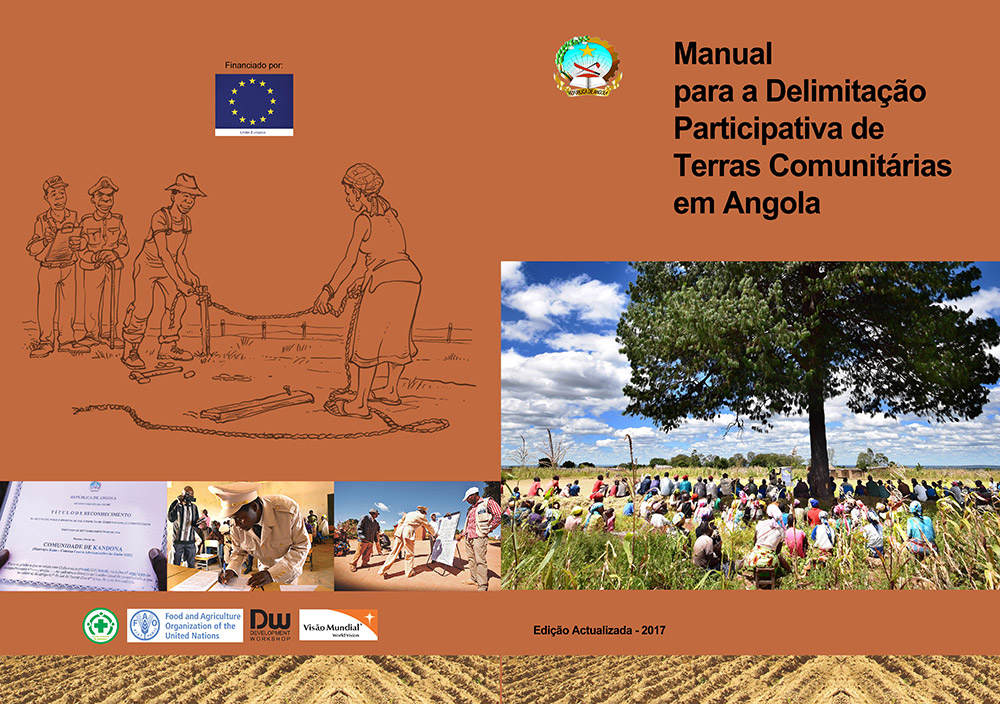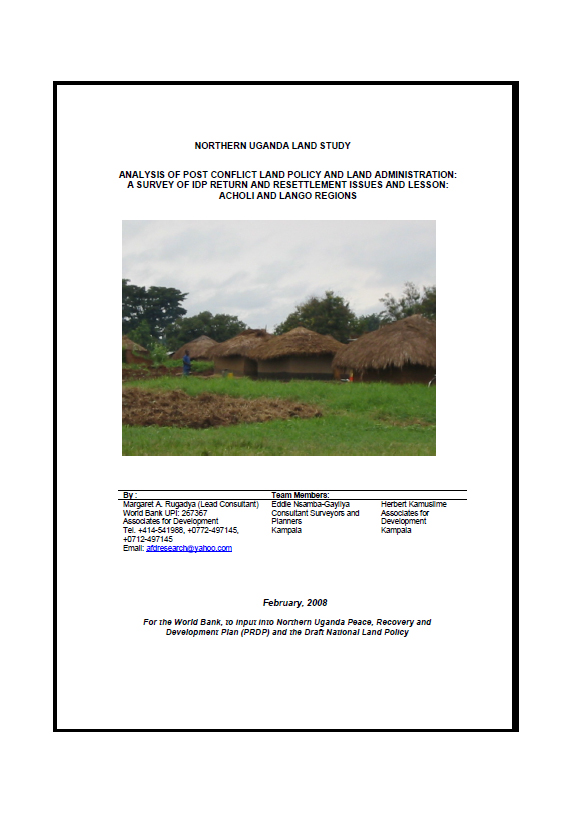MOzambique's innovative land law
A law can be a powerful tool for poverty alleviation and rural development.
In most developing countries, a majority of the population lives in rural
areas. Most rural residents—and especially the poorest people—depend
on the land for their livelihoods and long-term social security. Laws that
give people access and secure rights to land and encourage investment in
the land can establish a foundation on which rural families can grow their
incomes and assets. Good land laws can help create an environment that






